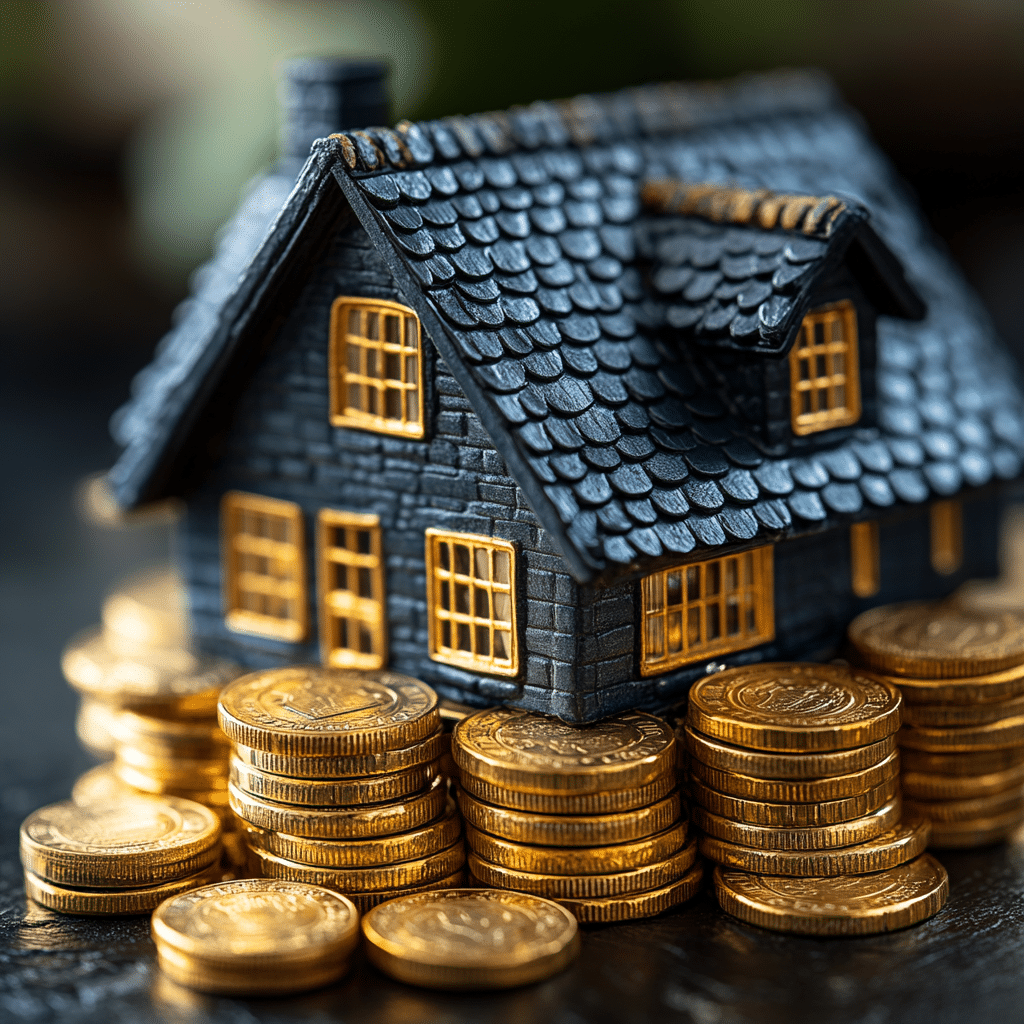When you’re stepping into the world of homeownership, one of the most pressing questions you’ll face is, “How much can I afford for a house?” This isn’t just a number thrown around; it’s a crucial part of your financial life. To answer this, you need to take a good look at your income, debts, and overall financial situation. The journey to homeownership should be exciting, and knowing how much you can afford helps to keep that thrill alive without stretching your budget too thin.

Understanding the Basics: How Much Can I Afford for a House?
Getting a grip on your financial health is step one. A common guideline is to keep your monthly mortgage payment at about 28% of your gross income. If you’re making $6,000 a month, you would ideally keep your mortgage payment around $1,680. However, that’s just the tip of the iceberg. You’ve got to factor in other expenses like property taxes, insurance, and your existing debts. Understanding your total financial picture is vital—don’t just stop at the price of the house!
Calculating your monthly mortgage payment can feel like walking through a minefield, but it doesn’t have to be. Use a How much house can I afford calculator to help estimate the numbers. It’ll show you how monthly payments break down based on your possible loan amount, interest rates, and loan terms. This provides a clearer idea of what you can handle without sacrificing your lifestyle.

Top 7 Factors Influencing How Expensive of a House Can I Afford
1. Income Level and Stability
You may earn $120,000 a year in a stable job or struggle to make ends meet at $60,000 as a freelancer. Your income directly impacts how expensive of a house you can afford. Think about how fluctuations in employment could affect your finances. Stability isn’t just a dream; it’s a significant factor in homeownership.
2. Credit Score Assessment
Your credit score speaks volumes about your financial health. A score above 740 could get you a mortgage rate as low as 3%, while anything below could push you to rates closer to 5%. A $400,000 home at 3% could bring monthly payments around $1,686, while at 5%, they might jump to $2,147. That’s nearly $500 more per month, which adds up fast! If you haven’t checked your credit score lately, it’s time.
3. Debt-to-Income Ratio (DTI)
This ratio is key to lenders when evaluating your financial flexibility. Ideally, your DTI should be 36% or lower. If you’ve got student loans or credit card debt, your DTI could push you out of your ideal home buying range. Keeping those debts managed gives you breathing room in your budget.
4. The Down Payment
The down payment affects everything from your monthly mortgage payments to your ability to avoid Private Mortgage Insurance (PMI). A 20% down payment on a $300,000 home totals to $60,000, making a huge difference in your monthly payment compared to a 3.5% down payment. Understand different loan types—like FHA loans—for strategies that could help you save.
5. Interest Rates
As of early 2024, mortgage rates are around 6%, a significant increase compared to previous years. This hike impacts buying power. A $400,000 house with a 1% difference in interest could mean additional payments of $200 monthly. Recognizing this can empower you to time your purchase wisely.
6. Property Taxes and Homeowner’s Insurance
Don’t forget about property taxes and insurance! Not every state is created equal in this respect. For example, New Jersey has one of the highest property tax rates in the nation. In areas with high taxes, factor these payments into your monthly budget to avoid any surprises later.
7. Lifestyle and Living Expenses
Your lifestyle choices matter a lot in how much house you can afford. If traveling or dining out is important to you, make sure to leave enough room in your budget. Opting for a lower mortgage means you can still enjoy life while paying down your home. Striking a balance will keep your finances stable without feeling deprived.
Final Thoughts: Creating a Balanced Budget for Homeownership
So, how much can I afford for a house? It’s not just a number; it’s a comprehensive analysis of various financial elements and personal values. Instead of fixating solely on the purchase price, look at the entire picture, including living expenses and future plans.
Being well-informed empowers you to make choices that benefit your long-term happiness and financial health. It’s about finding not just a house, but a home where you can thrive, balancing all areas of your life. As you make strides into homeownership, remember that it’s about living comfortably while embracing the new adventures that come with your space.
For those eager to dive deeper into the world of homeownership without the confusion, consider the resources available at Mortgage Rater for more insights, including elaborative tools on real estate Appraisers and real estate Auctions. After all, having a sound financial plan in place can turn “How much can I afford for a house? from a question into a confident answer.
How Much Can I Afford for a House?
When diving into the question of how much can I afford for a house, it’s easy to feel overwhelmed, but don’t fret! It’s a process that many folks find themselves feeling “lost” in, similar to how characters in Growing Pains navigated the ups and downs of life. Much like those turbulent teen years, figuring out your budget can stir up a mix of excitement and apprehension. Understanding your financial capacity is essential to maintaining a life full of comfort, so let’s break it down step by step.
Budgeting Basics: The Three Pillars
First things first, before you start dreaming of The Place beyond The Pines as your future home, focus on calculating your income, expenses, and savings. You’ll want to set a budget based on your monthly income – minus any debts and necessary expenses like groceries or utilities. Think of your ideal house as that perfect dream car—sure, it’s tempting, but if the payments make your stomach turn, it’s not worth it. Did you know that many people find budgeting can be as fulfilling as telling a captivating story, akin to the narratives you find in film, like Villain? Once you know your financial picture, it’s time to set a comfortable house payment goal that leaves room for “life” expenditures.
Size and Location Matter
Next up is considering the price of different homes. Surprisingly, the average cost of building a custom home may surprise you; you can check the details on How much Does it cost To build a home to get started. Each neighborhood might have distinct pricing, and it’s worth investigating some pros and cons, just like weighing the merits of an anal wife versus a great spouse—individual preferences vary greatly! The property you choose can shape your lifestyle, making it crucial to select a comfortable option that also aligns with your primary budget.
Think Long-Term and Enjoy the Journey
Finally, a vital piece of advice for anyone pondering how much can I afford for a house is to look ahead. Homes are investments, and just like a trusty computer, they need maintenance and care. Your house should enhance your quality of life now and in the future. Remember to consider long-term needs—schools, job opportunities, etc. The right decision today will pay off in dividends later, minimizing those pesky growing pains! So, take a deep breath, do your homework, and make the choices that fit your lifestyle. Times might get tough, but with a solid plan, you can secure your financial future in a way that feels less like stepping into the “badlands” and more like enjoying a thriller that keeps you at the edge of your seat.



